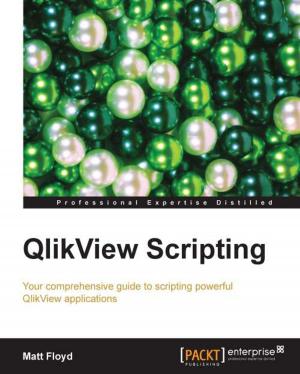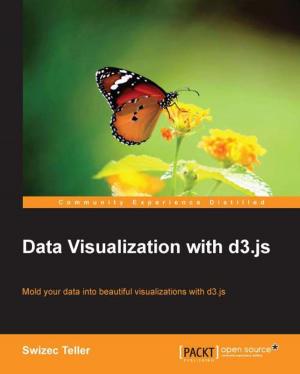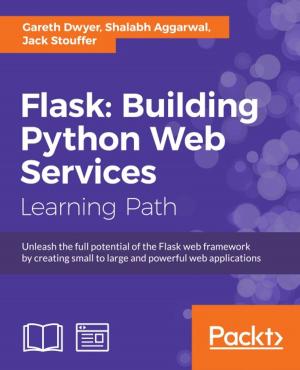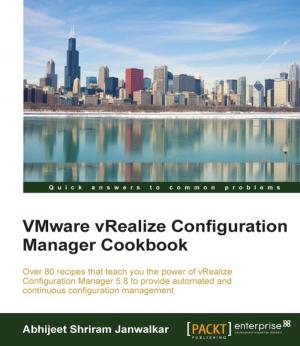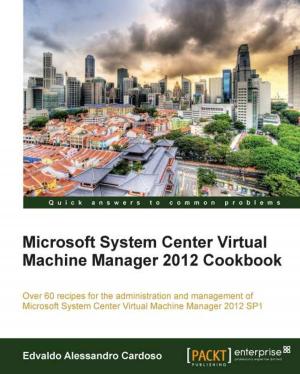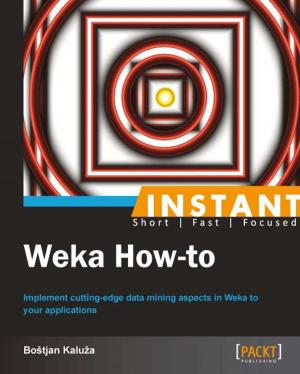Azure Serverless Computing Cookbook
Nonfiction, Computers, Application Software, Business Software, Operating Systems| Author: | Praveen Kumar Sreeram | ISBN: | 9781788392594 |
| Publisher: | Packt Publishing | Publication: | August 17, 2017 |
| Imprint: | Packt Publishing | Language: | English |
| Author: | Praveen Kumar Sreeram |
| ISBN: | 9781788392594 |
| Publisher: | Packt Publishing |
| Publication: | August 17, 2017 |
| Imprint: | Packt Publishing |
| Language: | English |
Over 50 recipes to help you build applications hosted on Serverless architecture using Azure Functions.
About This Book
- Enhance Azure Functions with continuous deployment using Visual Studio Team Services
- Learn to deploy and manage cost-effective and highly available serverless applications using Azure Functions
- This recipe-based guide will teach you to build a robust serverless environment
Who This Book Is For
If you are a Cloud administrator, architect, or developer who wants to build scalable systems and deploy serverless applications with Azure functions, then this book is for you. Prior knowledge and hands-on experience with core services of Microsoft Azure is required.
What You Will Learn
- Develop different event-based handlers supported by serverless architecture supported by Microsoft Cloud Platform – Azure
- Integrate Azure Functions with different Azure Services to develop Enterprise-level applications
- Get to know the best practices in organizing and refactoring the code within the Azure functions
- Test, troubleshoot, and monitor the Azure functions to deliver high-quality, reliable, and robust cloud-centric applications
- Automate mundane tasks at various levels right from development to deployment and maintenance
- Learn how to develop statefulserverless applications and also self-healing jobs using DurableFunctions
In Detail
Microsoft provides a solution to easily run small segment of code in the Cloud with Azure Functions. Azure Functions provides solutions for processing data, integrating systems, and building simple APIs and microservices.
The book starts with intermediate-level recipes on serverless computing along with some use cases on benefits and key features of Azure Functions. Then, we'll deep dive into the core aspects of Azure Functions such as the services it provides, how you can develop and write Azure functions, and how to monitor and troubleshoot them.
Moving on, you'll get practical recipes on integrating DevOps with Azure functions, and providing continuous integration and continous deployment with Visual Studio Team Services. It also provides hands-on steps and tutorials based on real-world serverless use cases, to guide you through configuring and setting up your serverless environments with ease. Finally, you'll see how to manage Azure functions, providing enterprise-level security and compliance to your serverless code architecture.
By the end of this book, you will have all the skills required to work with serverless code architecture, providing continuous delivery to your users.
Style and approach
This recipe-based guide explains the different features of Azure Function by taking a real-world application related to a specific domain. You will learn how to implement automation and DevOps and discover industry best practices to develop applications hosted on serverless architecture using Azure functions.
Over 50 recipes to help you build applications hosted on Serverless architecture using Azure Functions.
About This Book
- Enhance Azure Functions with continuous deployment using Visual Studio Team Services
- Learn to deploy and manage cost-effective and highly available serverless applications using Azure Functions
- This recipe-based guide will teach you to build a robust serverless environment
Who This Book Is For
If you are a Cloud administrator, architect, or developer who wants to build scalable systems and deploy serverless applications with Azure functions, then this book is for you. Prior knowledge and hands-on experience with core services of Microsoft Azure is required.
What You Will Learn
- Develop different event-based handlers supported by serverless architecture supported by Microsoft Cloud Platform – Azure
- Integrate Azure Functions with different Azure Services to develop Enterprise-level applications
- Get to know the best practices in organizing and refactoring the code within the Azure functions
- Test, troubleshoot, and monitor the Azure functions to deliver high-quality, reliable, and robust cloud-centric applications
- Automate mundane tasks at various levels right from development to deployment and maintenance
- Learn how to develop statefulserverless applications and also self-healing jobs using DurableFunctions
In Detail
Microsoft provides a solution to easily run small segment of code in the Cloud with Azure Functions. Azure Functions provides solutions for processing data, integrating systems, and building simple APIs and microservices.
The book starts with intermediate-level recipes on serverless computing along with some use cases on benefits and key features of Azure Functions. Then, we'll deep dive into the core aspects of Azure Functions such as the services it provides, how you can develop and write Azure functions, and how to monitor and troubleshoot them.
Moving on, you'll get practical recipes on integrating DevOps with Azure functions, and providing continuous integration and continous deployment with Visual Studio Team Services. It also provides hands-on steps and tutorials based on real-world serverless use cases, to guide you through configuring and setting up your serverless environments with ease. Finally, you'll see how to manage Azure functions, providing enterprise-level security and compliance to your serverless code architecture.
By the end of this book, you will have all the skills required to work with serverless code architecture, providing continuous delivery to your users.
Style and approach
This recipe-based guide explains the different features of Azure Function by taking a real-world application related to a specific domain. You will learn how to implement automation and DevOps and discover industry best practices to develop applications hosted on serverless architecture using Azure functions.


